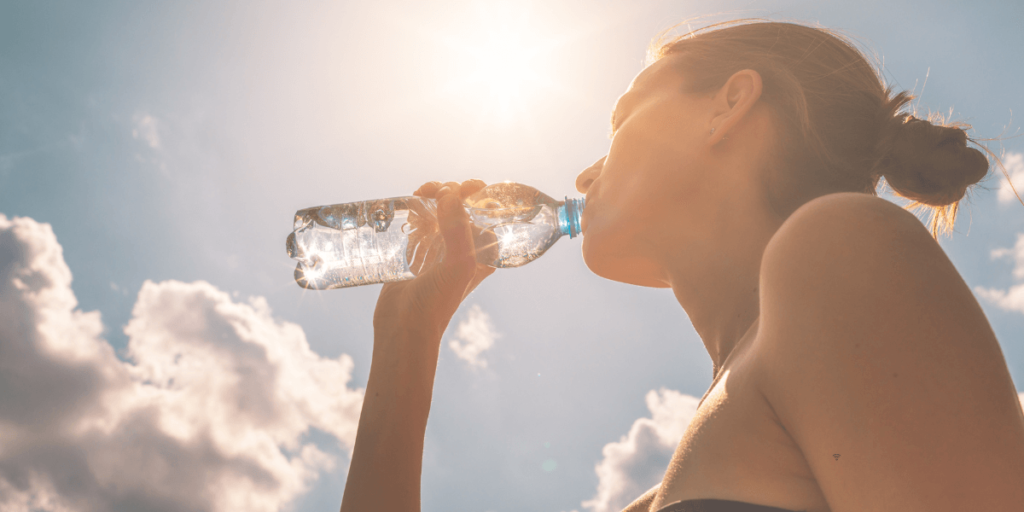Understanding Hydration and Its Importance
When we talk about essential factors contributing to a healthy lifestyle, hydration deserves a prominent spot. Drinking adequate water is not merely a habit; it is a cornerstone of well-being. Oftentimes, people overlook the importance of water in the pursuit of improved health, focusing instead on diet and exercise alone. However, understanding hydration can be the key to unlocking optimal health.
Water performs several critical functions within the body, acting as a transformative force for physiological processes. It is involved in digestion, absorption, circulation, and temperature regulation. Without sufficient hydration, these processes can falter, leading to a decline in health and well-being. Therefore, comprehending the importance of hydration and its role in maintaining bodily functions is indispensable.
Moreover, hydration impacts not just physical health but mental performance as well. Cognitive functions such as concentration, alertness, and short-term memory are influenced by an individual’s hydration status. A well-hydrated brain is quicker and more efficient, translating to improved performance in daily tasks and cognitive sharpness. Appreciating the holistic importance of water consumption can therefore be revolutionary in terms of health improvement strategies.
In this comprehensive exploration, we will delve deep into various aspects of hydration, unraveling its importance in maintaining daily functions, physical and mental health, and the misconceptions surrounding it. By the end, you will see hydration in an entirely new light and be equipped with practical tips to ensure you stay adequately hydrated at all times.
Functions of Water in Human Health
Water is essential to nearly every function in the human body, making it indispensable for maintaining health. One primary function of water is its role in chemical reactions. Many enzymatic and metabolic processes occur in the presence of water, making it a critical component of cellular function. For instance, hydrolysis reactions—where water is involved in breaking down complex molecules—are fundamental to the body’s energy production.
Another crucial function of water is its role in maintaining homeostasis. This involves regulating body temperature. During hot weather or intense physical activity, water is lost through perspiration. This sweating process helps cool the body but also necessitates the replacement of lost fluids to maintain balance. Furthermore, water assists in waste elimination. Without adequate hydration, the kidneys cannot efficiently filter blood to produce urine, thereby impairing the body’s ability to expel toxins.
Water also acts as a lubricant and cushion for joints, tissues, and the spinal cord. It provides a medium through which nutrients and oxygen can travel to cells, enhancing wound healing and tissue repair. The importance of water in protecting and enhancing bodily functions cannot be overstated, making it clear why consistent hydration is vital for overall health.
| Function | Role of Water |
|---|---|
| Chemical Reactions | Facilitates metabolic processes |
| Homeostasis | Regulates body temperature |
| Waste Elimination | Assists in excreting toxins |
| Lubrication | Cushions joints and tissues |
Daily Water Requirements
Understanding how much water one needs to drink daily can be confusing, given the varying recommendations. However, the general guideline, known as the “8×8 rule,” suggests consuming eight 8-ounce glasses of water per day, totaling about 2 liters or half a gallon. This guideline is a good starting point but may not meet everyone’s needs given individual differences.
Factors such as age, gender, weight, and physical activity level significantly influence water requirements. For example, individuals who engage in high-intensity exercises or live in hot climates will require more water to compensate for the higher rates of fluid loss. Additionally, certain medical conditions and medications can increase water needs.
A helpful method to gauge hydration is to observe the color of your urine. Light yellow to clear urine typically indicates adequate hydration, while dark yellow or amber signifies a need for more fluids. Personalized hydration strategies, tailored to an individual’s lifestyle and health conditions, yield the best results in maintaining optimal hydration levels.
| Age Group | Recommended Daily Water Intake |
|---|---|
| Infants | 0.7 – 1 liter |
| Children (4-8) | 1.2 liters |
| Teens (9-18) | 1.6 – 2.6 liters |
| Adults (19-50) | 2.7 – 3.7 liters |
| Seniors (50+) | 2.5 – 3.5 liters |
Symptoms and Dangers of Dehydration
Dehydration occurs when the body loses more fluids than it takes in, leading to a deficiency that impairs normal function. Early symptoms of dehydration can be subtle, making it essential to recognize the signs promptly. Common symptoms include dry mouth, thirst, dark yellow urine, and fatigue. As dehydration progresses, more severe symptoms like dizziness, confusion, and rapid heartbeat can manifest.
Severe dehydration is a medical emergency and requires immediate attention. It can lead to heat-related illnesses such as heat exhaustion or heat stroke. Complications such as kidney stones, urinary tract infections, and chronic kidney disease can also arise from prolonged inadequate hydration. Moreover, dehydration affects the cardiovascular system, potentially leading to decreased blood volume and pressure.
To prevent these dangers, it is crucial to stay vigilant about fluid intake, especially during hot weather or strenuous activities. Understanding the symptoms and risks associated with dehydration enables individuals to take prompt action, thereby safeguarding their health.
Hydration’s Impact on Physical Health
Consistent hydration plays a vital role in preserving and enhancing physical health. One of the primary benefits is its impact on cardiovascular health. Adequate water intake ensures that the blood remains fluid enough to easily circulate, decreasing the effort needed by the heart to pump blood and thereby lowering the risk of hypertension and cardiovascular diseases.
Hydration also significantly affects athletic performance and physical recovery. Athletes who maintain proper hydration levels experience increased endurance, strength, and agility. Proper hydration helps maintain blood volume, regulate body temperature, and allow muscle contractions to occur more smoothly. In contrast, dehydration can lead to muscle cramps, decreased coordination, and even collapse.
Additionally, hydration is crucial for skin health. Water helps maintain skin elasticity and moisture, preventing dryness and promoting a healthy complexion. It also expedites the healing process for wounds and reduces the likelihood of infections. Given these multifaceted benefits, it becomes evident that adequate hydration is foundational to maintaining robust physical health.
Hydration’s Impact on Mental Health
The brain is comprised of about 73% water, emphasizing the importance of adequate hydration for cognitive function. Studies have shown that even mild dehydration can have a detrimental effect on mental performance, including decreased concentration, short-term memory, and alertness. Maintaining brain hydration is crucial for optimal mental prowess and overall cognitive well-being.
Hydration also affects mood and emotional stability. Dehydrated individuals may experience irritability, anxiety, and an overall sense of malaise. By keeping adequately hydrated, one can maintain a sense of balance, improve mood, and enhance emotional resilience. Water plays a role in synthesizing neurotransmitters like serotonin, which are essential for mood regulation.
For those dealing with chronic conditions such as anxiety or depression, adequate hydration can be a simple yet effective complementary strategy to pharmaceutical treatments. Ensuring that the brain functions at its highest capacity through proper hydration can offer significant benefits for mental health, contributing to an overall sense of well-being.
Myths about Hydration
Despite the clear importance of hydration, several myths persist about how much water one should drink and what types of fluids are beneficial. One common myth is that one must drink eight glasses of water irrespective of other factors. While the “8×8 rule” is a solid guideline, hydration needs are subject to personal variables such as activity level, climate, and medical conditions.
Another prevalent myth is that caffeinated or alcoholic beverages contribute to dehydration. While it is true that caffeine and alcohol have diuretic effects, they can still count toward daily fluid intake if consumed in moderation. However, relying solely on these beverages for hydration is not advisable.
A third myth is that feeling thirsty is the best indicator of dehydration. In reality, thirst is a late signal. By the time one feels thirsty, the body is already experiencing a deficiency in its fluid balance. To stay adequately hydrated, one should aim to drink water consistently throughout the day, rather than waiting for thirst signals.
| Myth | Reality |
|---|---|
| 8 glasses of water per day for all | Varies based on individual factors |
| Caffeine and alcohol dehydrate | Can count toward fluid intake in moderation |
| Thirst is a perfect hydration indicator | Thirst is a late indicator, ongoing hydration is better |
Practical Tips for Staying Hydrated
Maintaining proper hydration doesn’t have to be challenging. Here are some practical tips to help you stay hydrated throughout the day:
- Carry a Water Bottle: Keeping a reusable water bottle with you ensures that you have access to water at all times. This simple step can make a significant difference in your daily water intake.
- Set Reminders: Use an app or set alarms to remind yourself to drink water at regular intervals. This can be especially useful for those with busy schedules.
- Infuse Your Water: Adding natural flavors like lemon, cucumber, or mint can make drinking water more enjoyable, encouraging more consistent intake.
- Eat Water-Rich Foods: Incorporating foods with high water content, such as cucumbers, oranges, and melons, can contribute to your overall hydration.
- Monitor Your Urine: Pay attention to the color of your urine as a simple, effective way to gauge hydration. Aim for a light yellow to clear coloration.
By implementing these practical strategies, staying hydrated becomes an easy and integrated part of your daily routine, ensuring you reap the numerous benefits of proper hydration.
Hydration for Different Life Stages
Hydration needs vary significantly across different life stages, from infancy to old age. Infants and children are particularly vulnerable to dehydration because they have higher water content in their bodies and faster metabolisms. Therefore, encouraging young children to drink water regularly is essential for their development and well-being.
During adolescence, an increased level of physical activity and bodily changes necessitate greater water intake. Teenagers should be educated on the importance of hydration to manage the physical and emotional upheavals of this stage effectively.
Older adults face their own unique set of hydration challenges. The aging process leads to a decrease in total body water and a diminished sense of thirst, making seniors more susceptible to dehydration. Additionally, elderly individuals might be taking medications that affect fluid balance. Ensuring that seniors have accessible fluids and are reminded to drink is crucial for maintaining their health.
| Life Stage | Unique Hydration Needs |
|---|---|
| Infants/Children | Higher water content, fast metabolism |
| Teenagers | Increased activity, bodily changes |
| Older Adults | Decreased body water, less thirst |
Exercise and Hydration Needs
Physical activity markedly increases the body’s need for water, making hydration especially crucial for those who partake in regular exercise. Water is lost through sweat and respiration during physical exertion, and failure to replenish these fluids can lead to dehydration, impairing performance and recovery.
Athletes should aim to drink water before, during, and after their workouts. Depending on the intensity and duration of exercise, specialized drinks containing electrolytes might be beneficial. Electrolytes like sodium and potassium help maintain fluid balance and prevent electrolyte imbalances.
For endurance athletes, such as marathon runners, hydration strategies become even more critical. It’s essential to not only drink water but to also consume fluids that maintain electrolyte balance. Failing to do so can result in conditions like hyponatremia, where low sodium levels can become dangerous.
By prioritizing hydration, athletes can improve their performance, speed up recovery times, and reduce the risks of heat-related illnesses, thereby better achieving their fitness goals.
| Exercise Duration | Hydration Strategy |
|---|---|
| Short (<1 hour) | Water |
| Moderate (1-3 hours) | Water + Electrolyte drinks |
| Long (>3 hours) | Electrolyte drinks + Scheduled water intake |
Conclusion: Embracing Hydration for Health
Water is a fundamental component of a healthy lifestyle, affecting every cell, tissue, and organ system in the body. Despite its simplicity, hydration is often overlooked in discussions of health and wellness. This comprehensive guide highlights the critical role of hydration in maintaining both physical and mental health, busting myths, and providing practical advice for everyone from toddlers to seniors.
In light of the myriad of benefits associated with proper hydration—including its impact on cognitive function, athletic performance, and overall well-being—it is evident that water should be considered a cornerstone of any health regimen. By embracing hydration, you’re taking a significant step toward achieving a balanced, vibrant, and healthier lifestyle.
Finally, the key takeaway is to make hydration an effortless part of your daily routine. Whether it’s by carrying a water bottle, eating water-rich foods, or paying attention to the signs of dehydration, the goal is to keep your body well-hydrated to unlock its full potential for health and vitality.
Recap
- Hydration is essential for maintaining both physical and mental health.
- Most bodily functions, including digestion, temperature regulation, and waste elimination, rely on adequate water intake.
- Daily water requirements vary depending on individual factors like age, activity level, and climate.
- Symptoms of dehydration include dry mouth, thirst, dark urine, and fatigue, with severe dehydration posing significant health risks.
- Hydration positively affects cardiovascular health, athletic performance, skin health, cognitive function, and emotional balance.
- Myths about hydration can lead to misconceptions, but practical tips and observing urine color can help maintain proper hydration.
- Hydration needs change across different life stages and are even more critical during physical activities.
FAQ
1. How much water should I drink daily?
While the “8×8 rule” suggests eight 8-ounce glasses per day, personal needs vary based on factors like age, weight, and activity level.
2. What are the signs of dehydration?
Common signs include dry mouth, thirst, dark-colored urine, and fatigue. Severe dehydration can cause dizziness and confusion.
3. Can caffeinated beverages hydrate me?
Yes, caffeinated beverages can contribute to fluid intake, though they should be consumed in moderation.
4. Why does hydration affect cognitive function?
The brain is 73% water, and adequate hydration is crucial for maintaining concentration, memory, and alertness.
5. How do I know if I am drinking enough water?
The color of your urine is a good indicator; aim for light yellow to clear.
6. Are there foods that help with hydration?
Yes, fruits and vegetables like cucumbers, oranges, and melons have high water content and contribute to overall hydration.
7. Do older adults have different hydration needs?
Yes, older adults have reduced body water and a diminished sense of thirst, requiring more cautious hydration practices.
8. What should athletes drink during exercise?
For activities less than an hour, water is sufficient. For longer durations, electrolyte drinks are recommended.
References
1. National Academies of Sciences, Engineering, and Medicine. *Dietary Reference Intakes for Water, Potassium, Sodium, Chloride, and Sulfate*. The National Academies Press, 2004.
2. Popkin, Barry M., Kristen E. D’Anci, and Irwin H. Rosenberg. “Water, Hydration, and Health.” *Nutrition Reviews*, vol. 68, no. 8, 2010, pp. 439-458.
3. Jequier, E., and F. Constant. “Water as an essential nutrient: the physiological basis of hydration.” *European Journal of Clinical Nutrition*, vol. 64, no. 2, 2010, pp. 115-123.



